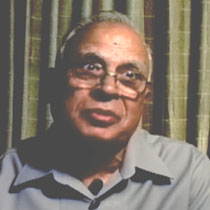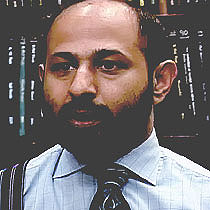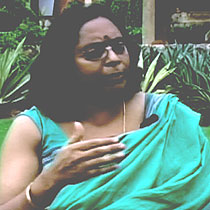2007年VOA标准英语-60th Anniversary of India-Pakistan Partition on
搜索关注在线英语听力室公众号:tingroom,领取免费英语资料大礼包。
(单词翻译)
By Steve Herman
New Delhi
09 August 2007
Sixty years ago this month, India and Pakistan became two separate independent nations, shedding British colonial rule. But independence brought violence and tragedy, because Pakistan was carved out of what had once been a single country, to create a Muslim homeland. Ten million people in the subcontinent were uprooted1 from their homes and hundreds of thousands died in the upheaval2. VOA's Steve Herman in New Delhi takes a look at the lingering problems resulting from Partition.
In a museum in New Delhi, an image of independent India's initial hopes springs to life. A robotic Jawaharlal Nehru accompanies a recording3 of India's first prime minister speaking minutes before independence, at midnight August 15th, 1947.
"It means the ending of poverty and ignorance and disease and inequality of opportunity,” he said in his speech. “That may be beyond us but as long as there are tears and suffering, so long our work will not be over."
Sixty years on that work is not over. Hundreds of millions in India, Pakistan and Bangladesh are impoverished4. And the memories of the violence that accompanied independence remain painful.
 |
| Pritam Singh Mahna |
Many leaders hoped that all could live peacefully together in the new nations -- one predominately Hindu and the other largely Muslim.
The father of Pakistan, Muhammed Ali Jinnah, believed there was no choice but to partition the subcontinent, otherwise, the Muslim minority would have been marginalized. "We must remember that we have to take momentous5 decisions and handle grave issues facing us in the solution of the complex political problems of this great subcontinent inhabited by 400 million people."
Partition led to Hindus and Sikhs streaming out of West and East Pakistan while millions of Muslims sought haven6 in Pakistan.
In sectarian fighting, hundreds of thousands of people died.
 |
| Farooqn Ahmad Dar |
That bloody7 history has haunted relations. India and Pakistan have fought three times and the territory that prompted two wars, Kashmir, remains8 disputed. The third war, in 1971, saw East Pakistan become independent Bangladesh. The two nuclear powers came close to war again in 2002.
Professor Dar says that many Pakistanis feel India wants to be the dominant9 South Asian voice. "India needs to shed its superiority complex and this is exactly what Jinnah said in 1947. Their basic problem is they want to deal with Pakistan as a senior partner and that is not acceptable to anybody here in Pakistan."
There have been signs of reconciliation10. In the past three years, the two governments have taken steps to improve relations.
Delhi University historian Visalakshi Menon says shared roots and continuing conflict shape the visions India, Pakistan and Bangladesh have of themselves and their neighborhood.
 |
| Visalakshi Menon |
While many historians think partition was inevitable13, they acknowledge it did not become the envisioned path to peace and prosperity.
Both India and Pakistan still suffer from domestic sectarian conflict, and they have struggled to end poverty. But both countries have seen strong economic gains in the past several years and they have taken larger roles in world affairs.
Citizens of the two countries still hope that means their governments will continue to move closer to the ideals of those who led the drive toward independence.
 收听单词发音
收听单词发音 




